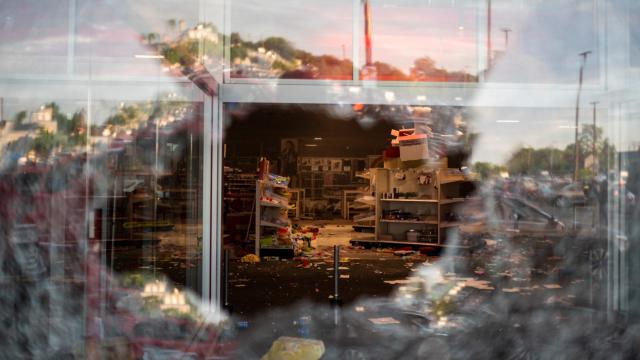Like most industries largely run on automation, the tech that underlies digital advertising is far from perfect, which is why — despite the best efforts of industry bigwigs — sometimes the pipes powering the industry don’t go where they’re supposed to. Sometimes, they’re funelling a brand’s name (and that sweet brand cash) into nazi-adjacent news sites. Sometimes, they’re fuelling 4chan or stories about children being raped.
And sometimes, you’re Target, a company that found itself at the centre of the current protests over the death of George Floyd at the hands of Minneapolis police, and (likely) inadvertently found its ads running alongside that news.
As some folks might’ve noticed when reading about the state’s police brutality shitshow, the company hasn’t been shy about promoting its brand alongside some of the news stories of its stores’ windows being smashed in and mannequins and self-checkout kiosks being pilfered.
Put another way, the same chain of stores that was looted in Minneapolis (and has since shuttered more than a dozen stores amid the current protest) is both funding — and generating revenue off of — the coverage of that looting. And it’s all probably happening without its knowledge.
Oh god. @Target is running ads on George Floyd related stories after protests targeted their stores. What’s actually worse is that one of the ads before this prominently featured a black woman. ???? I understand it’s automated by this is macabre. pic.twitter.com/AQlN8tEDbY
— Jayel Aheram (@aheram) May 29, 2020
As a reporter on the wacky world of adtech, the question I get asked the most often is why this brand targeted this person on this site, and the answer is generally an absolute nightmare to parse apart, and there’s a pretty slim chance anyone can fall on one definite conclusion. This is largely by design; when we’re talking about the digital pipes that an ad shoots through to land in front of your nose, we’re talking about something closer to a never-ending series of pipes (a la this classic screensaver) rather than a straight shot from Target’s HQ and onto your screen. And until Target responds to our request for comment, there’s going to be an air of mystery around the specs below — but we can give you the general gist.
For the most part, when we’re talking about “targeted advertising” we’re talking about soulless Silicon Valley companies spurred to make cookies easier to block in its most recent update to the Chrome browser last week.
Without any sort of juicy data to go on, some big brands use context clues to key in on the audience they’re looking for. Sometimes, for a big brand like Target, this means hitting up people who might be, say, reading about the hottest in coronavirus fashion with an ad for the clothes they’re selling, or targeting a person who’s really into bread blogs with an ad for, well, bread.
Sometimes this also means targeting the keywords in a given story: an ad that mentions a brand like Best Buy might get some Best Buy sponcon running alongside, and the same could be said for a story with Target at the centre. When it comes to this sort of targeting, ironically, sometimes the context of the story itself kind of flies out the window. Target, right now, likely doesn’t know that it’s targeting stories about George Floyd, they just know they’re targeting stories about Target.
